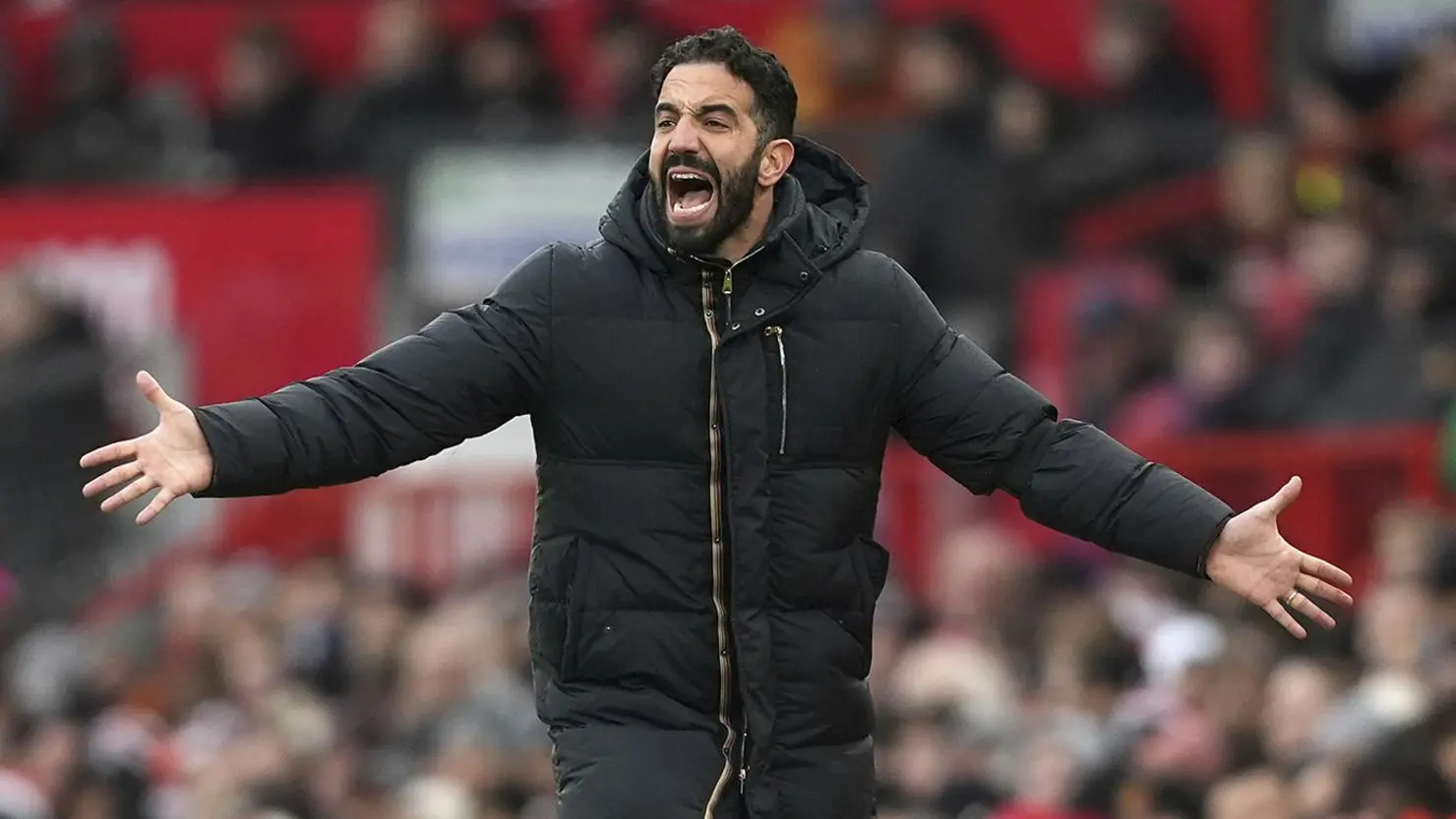In the wake of Manchester United’s disappointing run of form, former Red Devils star Denis Irwin has stepped forward to defend current manager Ruben Amorim.
He asserted that the blame for the team’s downturn lies not with Amorim but with the players themselves and the club’s recruitment strategy.
Since taking over the reins in November, Amorim has overseen just three victories from 11 Premier League matches, amassing a mere 11 points. This pales in comparison to Erik ten Hag’s tenure, where Ten Hag secured 15 points in the same number of games before his sacking. Despite implementing a radical shift in tactics, Amorim’s strategies have yet to yield positive results, leaving fans and pundits alike questioning his approach.
Irwin, a Manchester United legend who contributed to seven Premier League titles and the historic Treble in the 1998-99 season under Sir Alex Ferguson, appeared on the Stick to Football podcast, sponsored by Sky Bet, to share his candid views. He emphasized that the onus falls squarely on the players, rather than the managerial decisions. “I’ve said before, it’s down to the players. The manager can organize them, he likes a 3-4-3, but it’s literally down to the players,” Irwin stated, highlighting the players’ role in the current predicament.
Amorim’s tenure has been marred by internal turmoil and public outbursts. Following a crushing 1-3 defeat to Brighton, Amorim lashed out at his squad, calling them “maybe the worst team in the club’s history” and reportedly damaging the dressing room TV in a fit of rage. Despite these harsh words, Irwin remains steadfast in his defense of Amorim, suggesting that the manager is grappling with deeper issues within the squad.
One critical point Irwin raised is Manchester United’s recruitment strategy over the past decade. “You wouldn’t say Manchester United’s recruitment over the last ten years has been great either – that’s the biggest problem,” he remarked. The Red Devils have invested heavily in player acquisitions, yet the returns have been minimal, contributing to the club’s prolonged struggle to reclaim its former glory post-Sir Alex Ferguson.
Advertisement
Latest Press Conference
We’re on Social Media



Reflecting on the last ten years, Irwin acknowledged the inherent difficulties Manchester United faced after Ferguson’s departure. “It’s been a difficult ten years post-Sir Alex Ferguson. Everyone kind of knew it was going to be a difficult period after Sir Alex left,” he explained. Despite winning some cups, similar to Liverpool’s quiet period, United has not been a significant contender in the league, underscoring the challenges Amorim now faces.
Amorim himself has come under increasing scrutiny, even admitting last month that his position is precarious. The sporting director, Dan Ashworth, experienced a swift exit in December, just 159 days after a lucrative move from Newcastle, highlighting the volatile environment within the club’s hierarchy. This instability has undoubtedly hampered Amorim’s ability to implement his vision effectively.
In his recent press conference following the disheartening loss to Brighton—the team’s worst home start in the Premier League in 131 years—Amorim labeled the squad as “the worst team maybe in the history of Manchester United.” However, he has since retracted these statements, attributing them to personal frustration rather than a direct indictment of his players. “I was talking more for myself than for my players,” Amorim confessed. “If you look around, every time I speak—and I speak a lot—you push about the players are not good enough. I never put the spot on my players.”
Irwin further criticized the club’s recruitment policies, stating that the failure to secure top-tier talent over the years has left the team ill-equipped to compete at the highest level. “They’ve had a lot of experienced managers—Ole Gunnar Solskjaer as well—that have looked like they’re going to do something, but that light has just closed,” he added, drawing a parallel to Ole’s tenure and the broader issues plaguing the club.
Amorim’s acknowledgment of the team’s poor performance is a testament to the dire situation at Old Trafford. “We are breaking all the bad records,” he admitted, underscoring the magnitude of the crisis. With only two wins in 10 Premier League games, the pressure on Amorim is immense, especially as he follows in the footsteps of Erik ten Hag, who had a slightly better record.
Irwin’s insights provide a nuanced perspective on Manchester United’s woes, suggesting that while Amorim’s managerial style and public frustrations have exacerbated the situation, the root causes lie deeper within the squad dynamics and the club’s long-standing recruitment issues. As the Red Devils navigate this challenging period, the balance of responsibility between management and player performance remains a contentious topic among fans and analysts alike.
In conclusion, Denis Irwin’s defense of Ruben Amorim shifts the focus away from the manager and onto the players and the club’s broader strategic missteps. As Manchester United strives to regain its competitive edge, the interplay between managerial tactics and player execution will be crucial in determining the team’s future trajectory. For now, Irwin’s candid assessment serves as a reminder that the path to resurgence is fraught with both internal and external challenges that must be addressed holistically.
